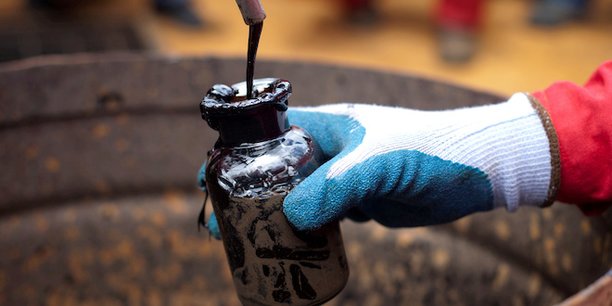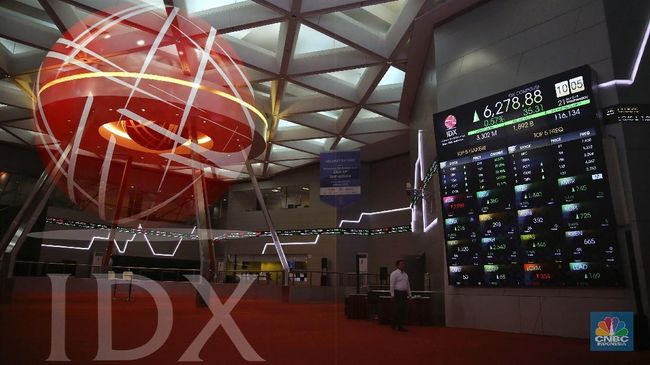The calculations are simple: if Europe turns away from Russian oil, “it will be necessary to replace a little more than a quarter of total imports” continent, alert this Wednesday, May 25 the Cepii, (center for prospective studies and international information). According to the organization attached to Matignon, 30% of European oil imports come from Russia and 40% of petroleum product imports from Moscow.
Cepii therefore recommends diversifying supplies by turning, for example, to Saudi Arabia, Brazil, the United States or Canada. Nevertheless, having recourse to these major hydrocarbon producers, geographically more distant from Europe than the Russian neighbour, will mechanically increase transport costs.
It also remains to convince these potential partners to sell their fuel to Europe, while Cepii interprets the contract signed in mid-March by Russia with Indian companies at a bargain price of 25 dollars per barrel as a warning addressed to these alternative providers. “The signal transmitted by Russia is that it will not hesitate to cut prices if they were to increase their production” to satisfy European desires for diversification, analyze the researchers.
At last, “it is important to consider the quality of crude oils” that Europe could import in the future. “Russian oil having good qualities for producing middle distillates (diesel), its replacement by another oil could require more complex treatment in the refinery to obtain the same finished products”, points the Cepii. And to conclude: “The price of petroleum products should therefore increase under the effect of these technical constraints, independently of the interplay of supply and demand”.
The memo comes as members of the European Union have been trying for several weeks to agree on an embargo on Russian oil imports. Despite the reluctance of Hungary, in search of guarantees on the maintenance of its supply, Paris and Berlin recently said they hoped for an agreement in the coming days.
Create a single buyer for gas
On the issue of gas purchases, which the European Union plans to reduce by two-thirds by the end of 2022, Cepii pleads in particular for the creation of a “single European buyer”. A single interlocutor who could strengthen the bargaining power of the 27 with alternative gas suppliers to Russia.
Also, be careful not to tie yourself excessively to the big producers in the Middle East, otherwise Europe could “exchange dependence on Russia for dependence on the Strait of Hormuz”, a region with “obvious geopolitical risks”.
Among the potential new gas suppliers, the authors of the note identify several “priority targets” : “the gas deposits discovered in the eastern Mediterranean (Cyprus, Israel, Lebanon), the many LNG projects currently being studied in Africa (Mozambique, Mauritania, Cameroon, Tanzania, Djibouti) and the development of the significant resources of Latin America”. “So the potential is there,” but diversifying supplies involves building new gas infrastructure, a time-consuming and costly process.
The objective of reducing imports by two thirds will therefore not be achieved. “without considering other avenues, such as the substitution of these fossil fuel imports by green energies or the reduction of energy consumption”, concludes the Cepii.
Consequences of a “greedy” Europe…
By entrusting a large part of their energy supply to Russia, the Europeans have shown themselves “greedy” and no “naive”, also estimated Tuesday, May 24 the European Commissioner for Competition Margrethe Vestager in an interview with several European newspapers.
“We weren’t naive, we were greedy. Our industry was built a lot around Russian energy first and foremost because it was cheap,” says Margrethe Vestager, who is also vice-president of the European Commission, in this interview published in France by Les Echos.
“There was a big risk premium – addiction – that we pay today” with the consequences of the war in Ukraine, explains the commissioner who judges that he “we will now have to pay a security premium”, in particular by betting on liquefied natural gas (LNG), which is more expensive but which could bring “stability and predictability, which will lead to investments”, she assures.
… including metals and rare earths
Margrethe Vestager also adds that the attitude of Europeans is the same on the subject of metals and rare earths. And this, “with China for many products or with Taiwan for chips, where we have above all sought lower production costs”. She pleads for “new international partnerships”, rather than the development of mining on European soil, “because it would take at least ten years.”
“For solar panels and semiconductors, many materials today come from China, Russia or Ukraine. We also need to diversify our supply. We cannot bet solely on the idea of developing mines and refineries on our soil,” considers the Executive Vice-President of the Commission, citing in particular Canada, Norway and Australia as countries with “lots of materials”.
(With AFP)
–


